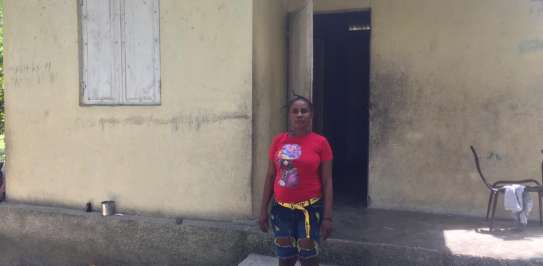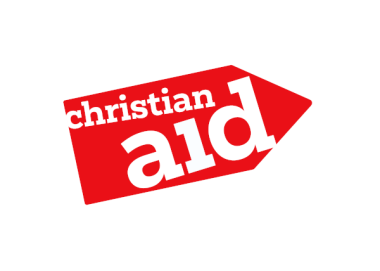The Haiti/DR programme is a bi-national programme working in five departments in Haiti and four provinces in the Dominican Republic.
Christian Aid strongly believes in reinforcing local capacity of local NGOs to render a lasting impact of CA’s work in both countries.
We aim to improve the lives of the most vulnerable by providing a voice to those who are often marginalised, specifically rural women.
The earthquake in 2010 had a devastating effect on the country, which was already the poorest country in the Western Hemisphere. However, the country is slowly rebuilding and moving on.
We are one joint programme with the Dominican Republic office.
Our aims
- To improve gender equity in Haiti and reduce gender-based violence;
- To help displaced persons and deported Haitian migrants returned from the DR to meet their basic needs for food, water, clothing, health, shelter;
- To reduce the loss of life and material prior to and following a natural disaster through reducing risks by raising awareness on how people can protect themselves, through evacuation and improving shelter;
- To improve the quality of life of farming communities by increasing people's knowledge of climate change, implementing adaptation measures, and advocating for the rights of Haitians;
- To reduce trafficking of children out of Haiti.
In Haiti we work on…
Climate change
We aim to strengthen the capacity of vulnerable communities to adapt to climate change and reduce the risk of future natural disasters.
Gender and inequality
We aim to empower women, Haitian migrants and displaced people, by helping them meet their basic needs and access their rights.
Our goal is to reduce gender-based violence in the communities where we work and improve gender equity, specifically in faith-based communities by increasing female leadership and supporting religious leaders to speak out on issues of gender inequality.
Humanitarian response
We support vulnerable communities to prepare for and respond to humanitarian crises through disaster risk reduction and immediate recovery efforts.
Our humanitarian experience was enhanced following our response to the 2010 earthquake and Hurricane Matthew in 2016.
Haitians were already experiencing poverty, environmental degradation, a weak government and deep levels of corruption – a situation which was compounded following the earthquake.
Haiti is vulnerable to global food price rises as it is largely dependent on imported food. That is why supporting Haitian producers is a key part of our work.
Where we work and who we work with
We work in five of ten departments across the West, Centre, North East, North West, and South of Haiti.
We are closely linked with the Dominican Republic programme, and together we work across the island of Hispaniola, with offices in both Port-au-Prince and Santo Domingo.
We also draw on the expertise of global colleagues and work closely with the ACT Alliance and Cadre de Liaison Inter-Organisations (CLIO) to improve coordination of the work of national and international NGOs.
Key achievements
Humanitarian response
After the earthquake, working in collaboration with ACT Alliance members including Diakonie Katastrophenhilfe, we carried out a needs assessment, which revealed an urgent need for housing specifically disaster-resistant homes.
Following this, Christian Aid and its partners worked to build 700 houses, directly benefitting around 4900 people, including boosting employment for workers in the construction industry.
After Hurricane Matthew, together with our partner KORAL (Kounbite pou Ranfose Aksyon Lakay), just under 1200 homes were repaired and 69 houses rebuilt.
Christian Aid also distributed cash to people affected by the disaster. Around $26 a day was given out to families over a period of three to 10 months.
We are also working to train young people to become builders in collaboration with Habitat for Humanity. The training looks at new ways of building, such as using building methods, which would cope with recurring natural disasters including hurricanes and earthquakes.
With around 30,000 people still living in makeshift camps today, the need for housing is still urgent.
-
200,000
people were reached by Christian Aid's work after the earthquake in 2010
Climate change
Within our climate change work, we are focusing on three areas:
Awareness
Christian Aid Haiti works to raise awareness around climate change to disseminate this information.
As the climate changes, Haiti is experiencing hurricanes more frequently. We aim to raise climate change awareness, working through faith leaders and the media, to educate people, so they can be better prepared and able to reduce the risks associated with disasters.
Adaptation
Deforestation continues to be a significant concern in Haiti. Reforestation is a priority in the country because trees minimise the impact of storms, acting as a buffer and protecting homes and property.
We are working with our partners to re-plant 100,000 trees per year and find alternative energy sources, including developing energy-efficient stoves.
Our programme also provides workers in the forestry industry with alternative livelihoods to reduce the impact of these activities on the environment.
One project offering workers an alternative is our partner Veterimed's dairy in Port-au-Prince.
It has a production capacity of around 480 litres of milk per day and produces sterilised milk, pasteurised milk, cheese, and yogurt.
It also serves as a training space for staff and more than 50 farmers, who provide milk and receive monthly payment for the quantity supplied over that time.
Each farmer can earn more than $50 to $120 a month if they provide around four to eight litres of milk a day.
Gender-based violence and trafficking
As many unaccompanied minor cross in and out of Haiti, our work has focused on monitoring the border to prevent abuse and trafficking of children.
Over 1000 children a year have been stopped at the border and returned to their families thanks to this work.
We are also working with the Ministry of Women's Affairs to set up a legal framework to tackle gender-based violence.
This includes educating faith leaders about the issues of gender-based violence, so they can advise victims where and how to seek help, and offer a parish, which is a haven for them.
Wider advocacy
Housing
We are working to advocate for more resilient housing models and for a new law that allows people to have access to credit for housing in Haiti.
A lot of work has been done on working with the government to ensure that there is a commitment to providing houses for people affected by natural disasters and also towards training young builders in the construction industry.
Bringing people together
Christian Aid has acted as a convener, working and bringing together the private sector, the government, NGOs, and the communities for greater impact and coordination of development and humanitarian work.
Find out more about our work in the Dominican Republic
